FY2020 Annual Report
Computational Neuroethology Unit
Assistant Professor Sam Reiter
Abstract
The Computational Neuroethology Unit seeks to uncover the principles governing animal behavior and its neural basis. To achieve this goal, the unit combines novel methods for high-resolution behavioral recording with systems neuroscience and computational approaches. The unit currently focuses on coleoid cephalopods (cuttlefish, octopus, and squid), a group of marine invertebrates that evolved uniquely large brains and complex behaviors.
1. Staff
- Dr. Kazumichi Shimizu, Postdoc
- Dr. Natacha Roux, JSPS Postdoctoral Fellow
- Dr. Tomo Mano, JSPS Postdoctoral Fellow
- Dr. Makoto Hiroi, Staff Scientist (with Stephens Unit)
- Dr. Robert Ross, Postdoc (with Pigolotti Unit)
- Mr. Jeff Liner, Research Technician
- Mr. Keishu Asada, Fieldwork Technician
- Ms. Shoko Yamakawat, Research Unit Administrator
- Ms. Aditi Pophale, Graduate Student
- Ms. Sen Hadife, Graduate Student
- Mr. Tojo Rakotoaritina, Rotation Student
- Ms. Miyu Nambu, Rotation Student
- Mr. Kostas Tsaridis, Rotation Student
2. Collaborations
2.1 Squid collective behavior
- Description: Decoding the language of social cephalopods.
- Type of collaboration: Joint research
- Researchers:
- Professor Greg Stephens, Vrije Universiteit Amsterdam/OIST
- Dr. Makoto Hiroi, OIST
2.2 Cephalopod Physiology
- Description: Analysis of neural recordings from cephalopod brains
- Type of collaboration: Joint research
- Researchers:
- Dr. Leenoy Meshulam, University of Washington
2.3 Cephalopod skin as growing active matter
- Description: Analysis of skin pattern growth and development
- Type of collaboration: Joint research
- Researchers:
- Professor Simone Pigolotti, OIST
- Dr. Robert Ross, OIST
2.4 Cephalopod camouflage in the field
- Description: Describing natural image statistics underwater, and how cephalopods match them
- Type of collaboration: Joint research
- Researchers:
- Professor Stephanie Palmer, University of Chicago
- Mr. Amar Risbud, University of Chicago
- Dr. Siwei Wang, University of Chicago
2.5 Cuttlefish Camouflage Dynamics
- Description: Describing the space of cuttlefish camouflage, and how they move in this space
- Type of collaboration: Joint research
- Researchers:
- Professor Gilles Laurent, MPI for Brain Research
- Ms. Theodosia Woo, MPI for Brain Research
- Dr. Xitong Liang, MPI for Brain Research
- Dr. Dominic Evans, MPI for Brain Research
2.6 Clownfish behavior
- Description: Tracking clownfish social behavior in 4 dimensions
- Type of collaboration: Joint research
- Researchers:
- Professor Vincent Laudet, OIST
- Dr. Manon Mercader, OIST
3. Activities and Findings
Despite the difficulties faced by everyone in 2020/2021, this past year has been one of rapid growth and development for the unit. In April 2020 we moved into a beatiful space on the top floor of OIST's newly built Lab 4. Here is the view out of the unit office space, looking out at the forest, Lab 1, and the sea. Lab 5 is under construction on the right.

We have spent the year setting up the space and beginning experiments. After a lot of hard work things are beginning to feel less like a workshop and more like a laboratory, although there is much more to build. Here is our wetlab space, shared with Svante Pääbo's unit.
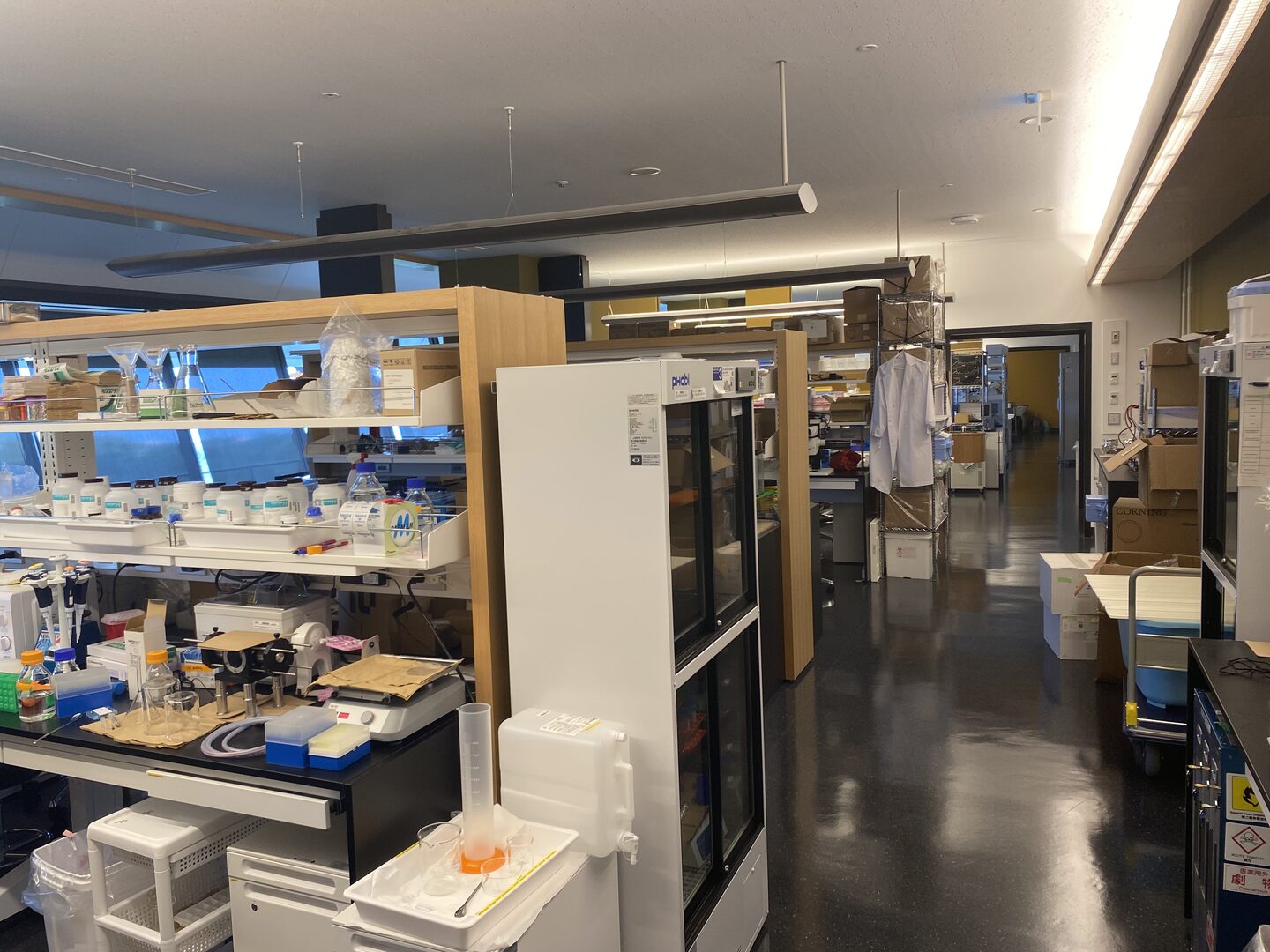
We've been setting up some electrophysiology equipment, and are excited to start seeing what is possible in terms of neural recordings in cephalopods.
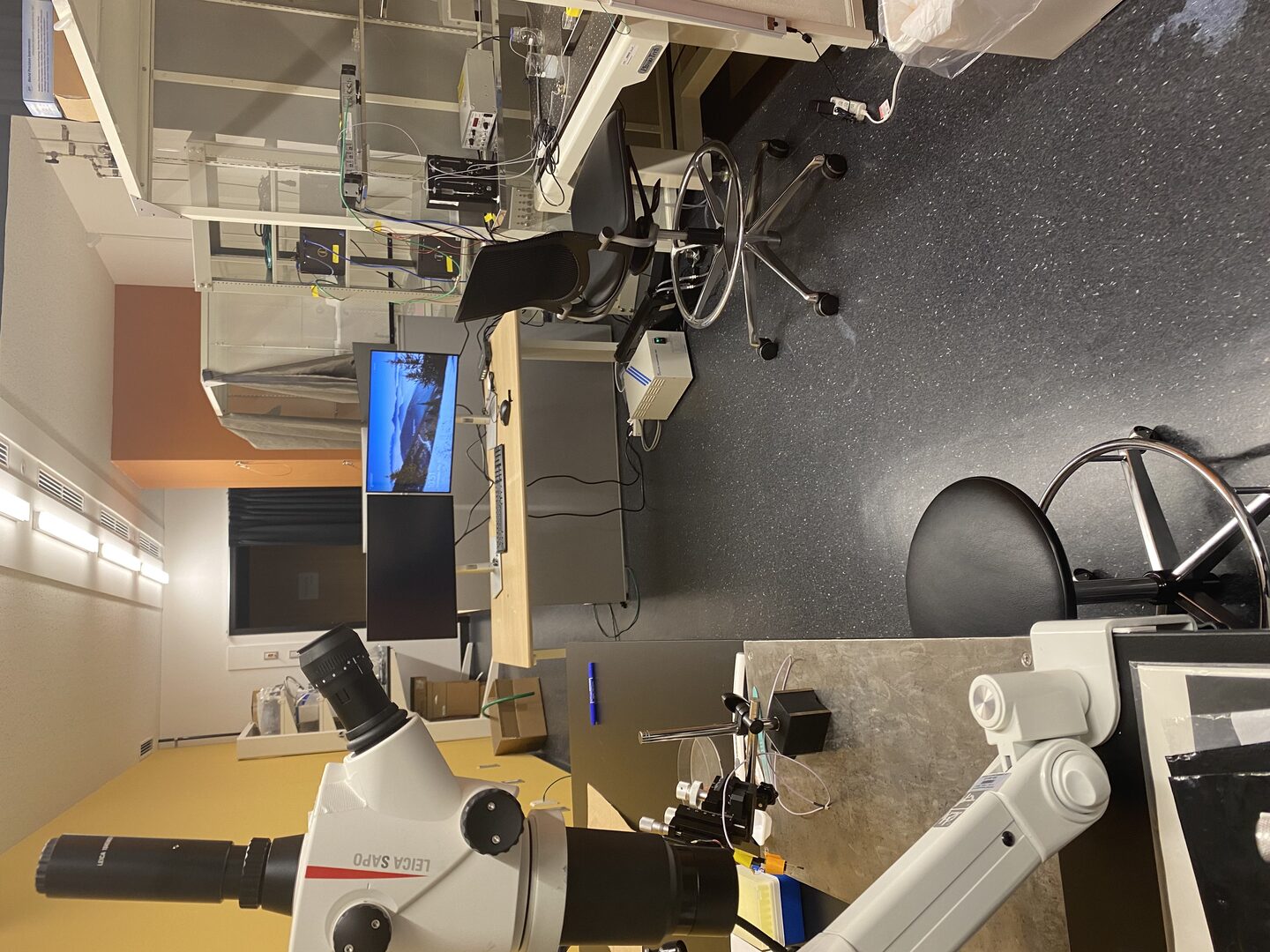
Tomo in lab is making rapid progress building a new axially swept light sheet microscope. DIY 2-photon goes up next.
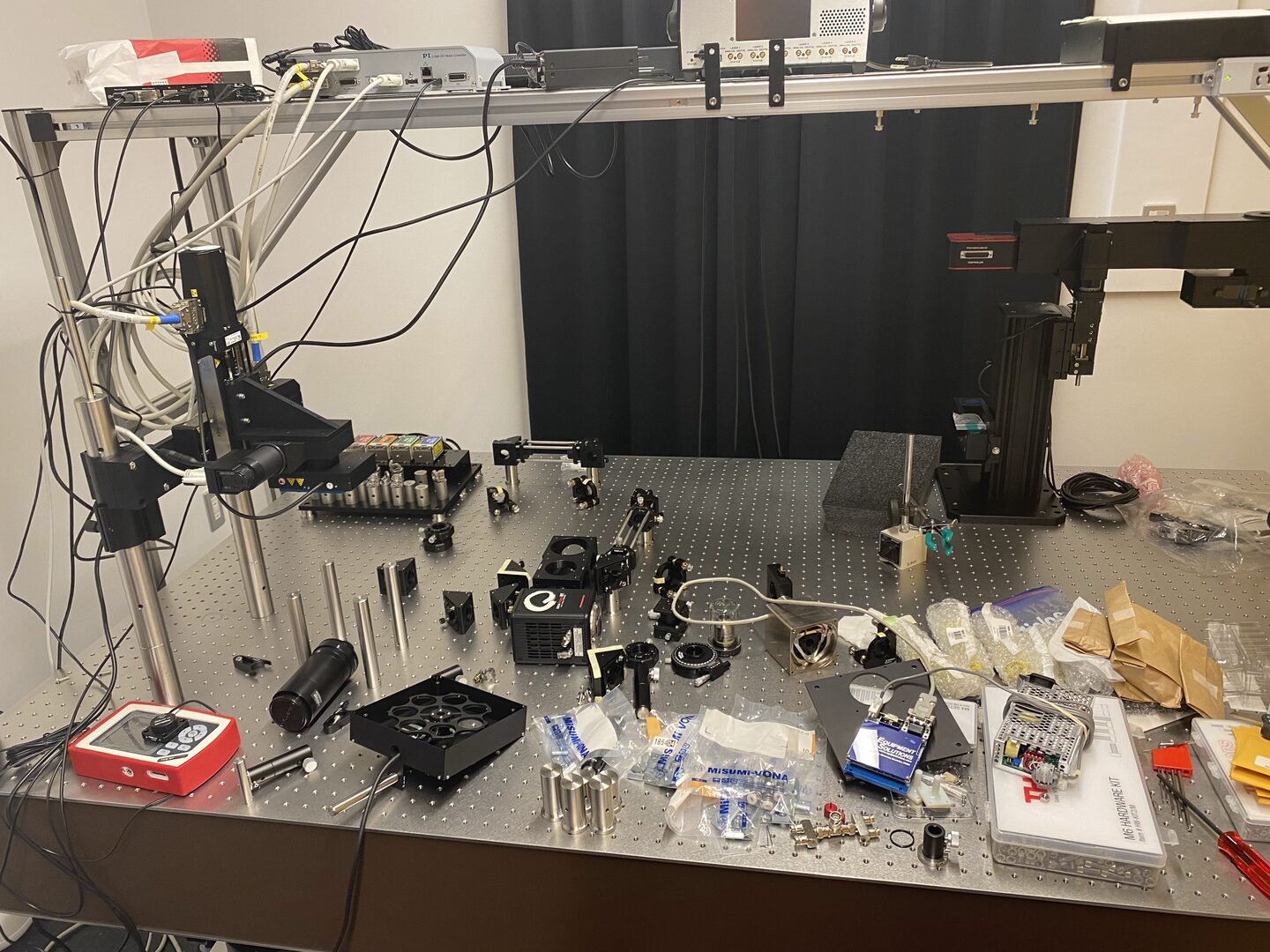
Here's Tomo and Miyu in the microscope room Vincent Laudet's unit kindly lets us use. We've been exploring antibodies for staining cephalopod brain tissue.
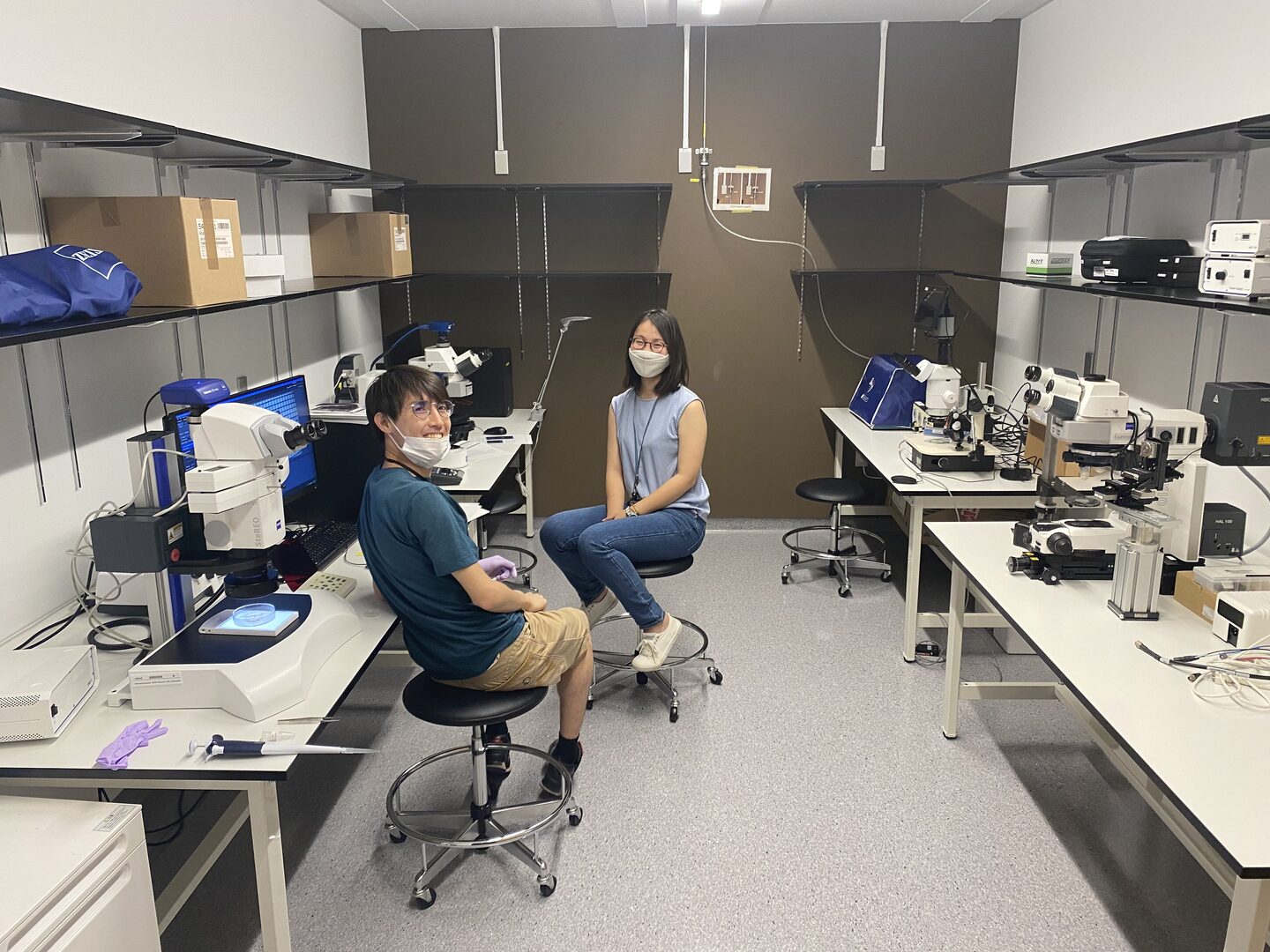
The largest room in the lab is set up for keeping and breeding cephalopods, it's all built and ready for the new tank system currently en-route from France.

Currently all the cephalopods are being kept in the OIST marine station. This year we have succeeded in raising local octopus from eggs and in breeding squid. Behavioral filming experiments are underway.
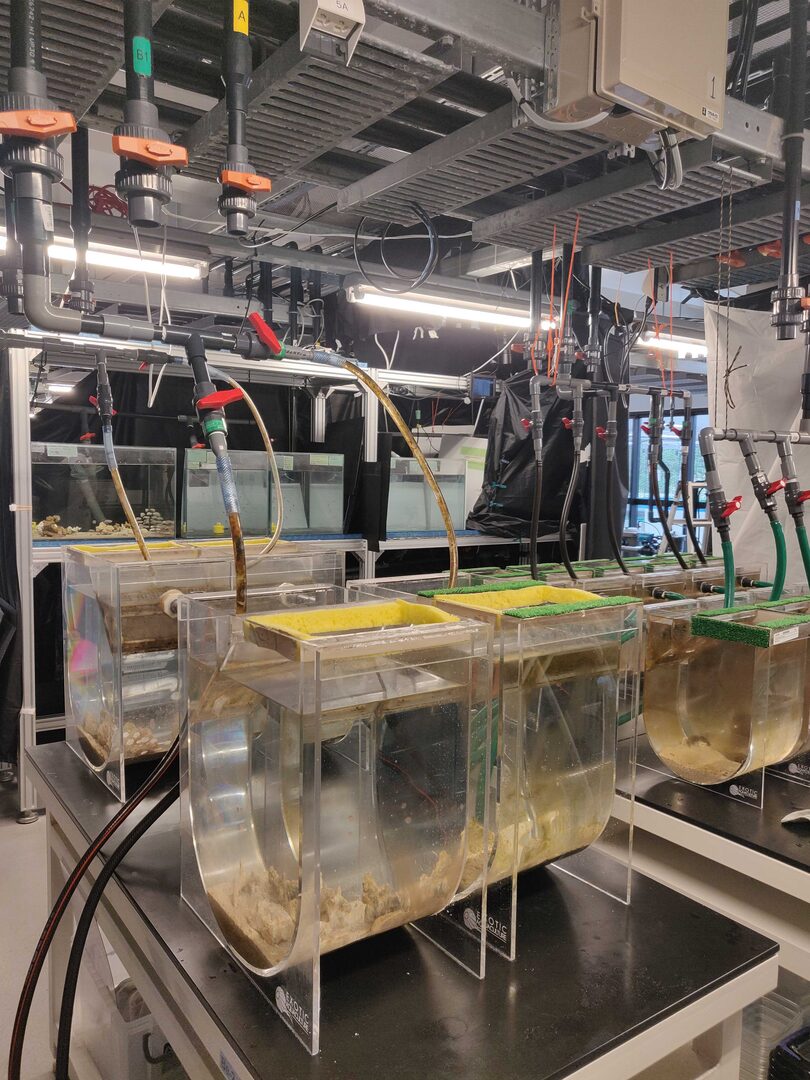
4. Publications
4.1 Journals
Nothing to report
4.2 Books and other one-time publications
Nothing to report
4.3 Oral and Poster Presentations
Pophale A., Reiter S., Two-Stage Sleep in cephalopods. International Symposium on Artificial Intelligence and Brain Science 2020, Tokyo, Japan.
Reiter S., An ecological approach to understanding the brain. Green and Blue Planet-How can Ecological Research shape our future, Okinawa, Japan.
5. Intellectual Property Rights and Other Specific Achievements
Nothing to report
6. Meetings and Events
Nothing to report
7. Other
Nothing to report.



